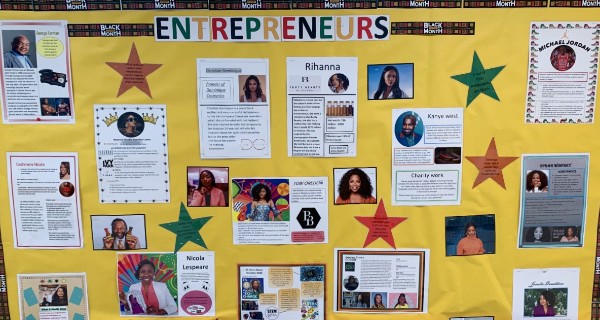October is Black History Month and all through the Schools we will be looking back at influential black lives. We look forward to updating you on some of the activities taking place next month but we hope that the stories being discussed will provoke some interesting conversations at home.
David Kemp, Head of RMPS at The Mary Erskine School has been sharing a number of stories around the school about influential black lives that we may not all have heard of but that we should all know about it. He has picked five of these stories to share with our ESMS families.
Bayard Rustin (1912 – 1987)
Bayard Rustin was a leading American civil rights activist who promoted the philosophy of non-violence and organised the March on Washington in 1963. He served his community tirelessly while pushing for more jobs, better wages and equal treatment for African-Americans. Rustin was homosexual and was arrested, early in his career, for a homosexual act. The personal attacks he received over his sexuality and criminal record prevented him from being a public spokesperson and he was forced to limit his role to advising civil-rights leader, behind the scenes. In the 1980s, he became a public advocate on behalf of gay causes, speaking at events as an activist and supporter of human rights. In 2013, President Barack Obama posthumously awarded Rustin the Presidential Medal of Freedom.
Bessie Coleman (1892 -1926)
Despite being the first licensed black pilot in the world, Coleman wasn’t recognised as a pioneer in aviation until after her death. History has focused on Amelia Earhart or the Wright brothers. Bessie could not gain admission to American flight schools because she was black and a woman. A famous African American newspaper publisher, Robert Abbott, encouraged her to study abroad and she went to France to gain her international pilot’s license. In 1922 she performed the first public flight by an African American woman. She was famous for doing “loop-the-loops” and making the shape of an “8” in an airplane. She toured the country giving flight lessons, performing in flight shows, and she encouraged African Americans and women to learn how to fly. Her achievements paved the way for a new generation of diverse fliers like the Tuskegee Airmen, Blackbirds, and Flying Hobos.
Dr John Anthony Roberts QC (1928-2016)
John Roberts was the first person of African ancestry to be made a QC or Queen’s Counsel in England and Wales and championed the role of women in the legal service. On his first day in charge of a law court, he hired seven female barristers something unheard of at the time. Highly respected in the law, the Queen listed him as an expert who could work on difficult cases, often of national importance. Apart from the English Bar, John was also called to the Bars of 10 other countries: Jamaica (1973), Sierra Leone (1975), Trinidad & Tobago (1978), Bahamas (1984), St Kitts & Nevis (1988), Antigua (2002), Barbados (2002), Bermuda (2003), Anguilla (2006) and Grenada (2007). This is almost certainly a record.
Claudette Colvin (1939 - )
Most of us have heard about Rosa but before Parks refused to give up her seat on a bus in Montgomery, Alabama in 1955, there was a brave 15-year-old who chose not to sit at the back of the bus. That young girl was Claudette Colvin. Highlighting her Constitutional Rights to remain seated near the middle of the vehicle, Colvin challenged the driver and was subsequently arrested. She was the first woman to be detained for her resistance.
Mary Seacole (1805-1881)
Mary Seacole was born in Jamaica but came to Britain in 1854. She asked the War Office if she could go to help wounded soldiers fighting in the Crimean War but as a black woman she was refused. Mary raised the money herself and travelled to Balaclava, Ukraine. Here, she looked after British soldiers who had been injured. Most people remember Florence Nightingale, but Mary Seacole is far less known. 135 years after her death, a statue was built, outside St Thomas' Hospital in London, to commemorate her extraordinary work.






